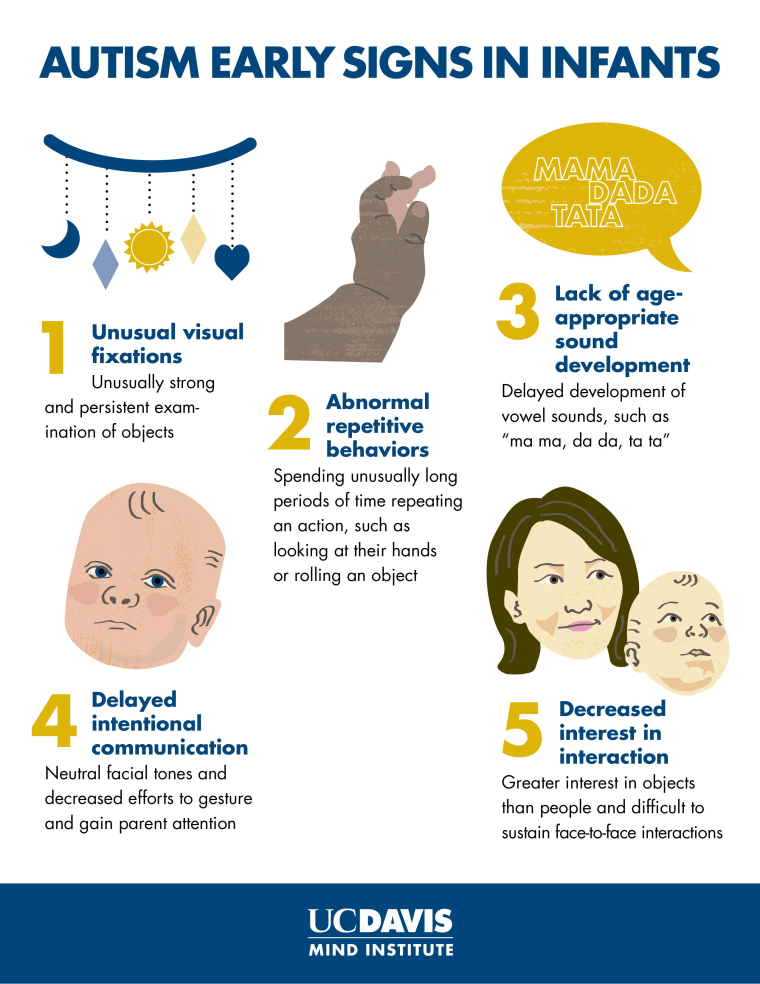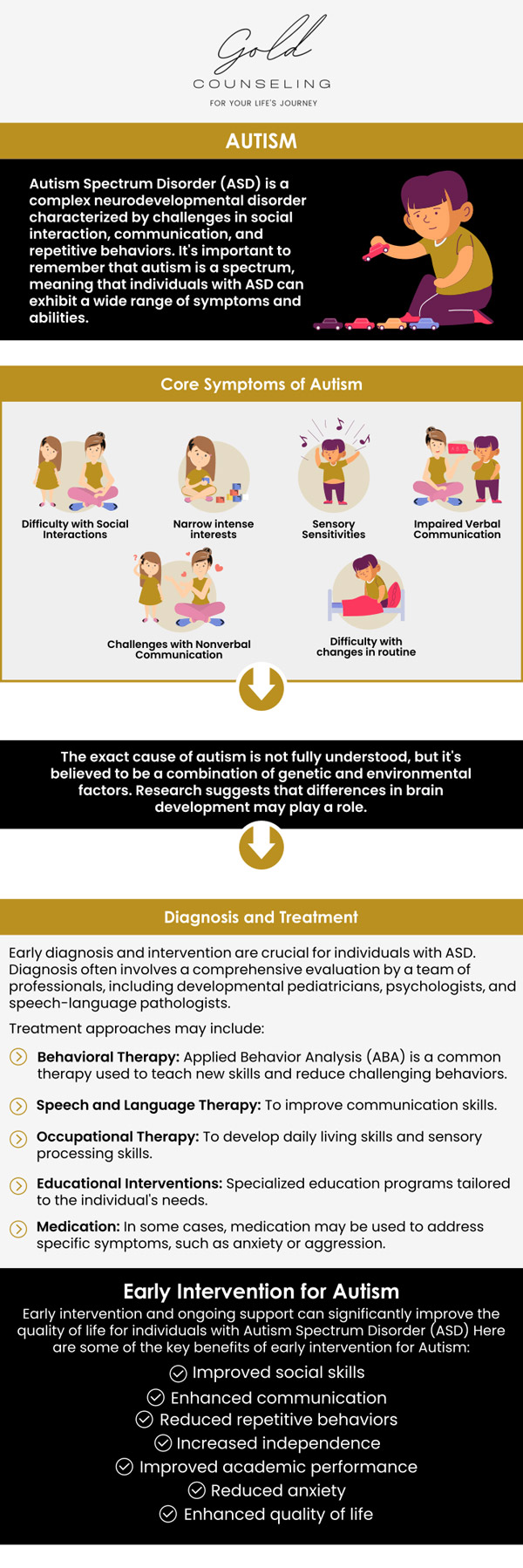What makes an effective Autism Behavioral Therapy method
Recognizing the Effect of Behavioral Autism on Daily Life and Social Communications
You might not realize how deeply behavior autism affects daily life and social communications. Individuals on the range commonly browse a globe filled with communication difficulties and sensory overload. These obstacles can lead to irritation and isolation, impacting their relationships and overall well-being.
Specifying Behavioral Autism and Its Attributes
Behavior autism, usually referred to as autism range problem (ASD), incorporates a variety of problems characterized by difficulties in social interaction, communication, and repetitive actions. You may notice that people with ASD often have a hard time to analyze social signs, which can bring about misunderstandings in conversations. They might find it hard to develop eye get in touch with or take part in small talk, making social situations really feel overwhelming.
Interaction problems can materialize in numerous means, from postponed speech growth to a preference for making use of less words. By acknowledging these traits, you can promote an environment that advertises approval and urges efficient interaction, aiding people with autism grow in their daily interactions.
The Range of Autism: Recognizing Irregularity in Behavior
Autism range problem (ASD) isn't a one-size-fits-all medical diagnosis; it varies widely among people. You might encounter individuals who are extremely verbal and engage easily in discussions, while others could favor solitary activities or connect non-verbally.
Moreover, the way people with ASD react to sensory input can differ substantially; some may be overwhelmed by intense lights or loud noises, whereas others prosper in boosting settings. The range additionally consists of distinctions in social interactions; some people might battle to translate social cues, while others browse social setups with loved one convenience. Recognizing this variability is essential, as it assists you appreciate everyone's unique experience and tailor assistance to their particular needs, promoting a much more comprehensive environment for every person.
Interaction Challenges Faced by People With Autism
When you interact with individuals on the autism spectrum, you might observe their unique communication obstacles. They usually encounter difficulties with both nonverbal and spoken signs, which can influence their social interactions. Understanding these barriers is important for fostering much better links and support.

Verbal Communication Problems
Many individuals on the autism spectrum experience spoken interaction troubles that can significantly impact their daily communications. Your quantity, tone, or rate could not straighten with social expectations, triggering others to misinterpret your objectives. Identifying these challenges can aid you and your assistance network develop strategies to boost interaction and foster much better links with others in your day-to-day life.
Nonverbal Interaction Barriers
Verbal interaction isn't the only obstacle individuals on the autism spectrum face; nonverbal interaction obstacles can be simply as substantial. These challenges can lead to misconceptions or false impressions of social hints, making communications feel confusing or frustrating. By addressing nonverbal interaction, you can find approaches to boost your social experiences and improve your general high quality of life.
Social Communication Influences
Social interactions can commonly really feel overwhelming due to the unique interaction challenges encountered by people with autism. You might battle with interpreting social signs, making it difficult to comprehend sarcasm or body movement. This can lead to misunderstandings or unpleasant minutes in discussions. In addition, launching and preserving discussions might really feel difficult, causing anxiousness in social circumstances. You might prefer structured atmospheres, making spontaneous communications uncomfortable. It's additionally typical to experience problem in participating in small talk, which can hinder developing new friendships. Recognizing these obstacles can help you discover approaches to boost communication, such as exercising social skills in risk-free settings or making use of visual help - Autism Spectrum Therapies. Recognizing your needs enables you to navigate social communications with higher self-confidence and simplicity.
Social Communication and Relationship Building in Autism
While building connections can be testing for individuals with autism, understanding their distinct perspectives and communication designs can foster significant connections. You may notice that lots of people on the spectrum prefer direct interaction and might battle with social hints or tiny talk. By being straightforward in your communications, you can assist develop an environment where they feel comfy.
Make the effort to observe and pay attention exactly how they express themselves. This understanding can direct you in steering conversations more successfully. Participating in shared rate of interests can also offer as a bridge to deeper links. Whether it's a leisure activity, a favored show, or a mutual passion, these typical strings can open doors to relationship.
Daily Life Regimen: Browsing Obstacles and Methods
Maneuvering day-to-day life routines can be specifically challenging for people with autism, especially when unanticipated changes happen. To browse these challenges, consider carrying out aesthetic routines or checklists.
Developing a regimen that includes sensory breaks can also be valuable. You can plan time-outs throughout your day to recharge. It's necessary to communicate with those around you, letting them recognize your preferences and requirements. This helps produce an understanding atmosphere.
Last but not least, technique mindfulness techniques to manage stress and anxiety and stress and anxiety. Basic breathing workouts or grounding strategies can make a significant difference. By including these approaches, you can boost your day-to-day routine and reduce interruptions, making life feel more manageable.
Strengths and Abilities of People on the Autism Spectrum
Comprehending day-to-day life regimens is just one aspect of the autism experience. Many people on the autism spectrum have exceptional staminas and abilities that establish them apart.
Moreover, your memory abilities usually beam, specifically in locations of rate of interest. Autism Spectrum Therapies. This flair for retaining details can make you a useful resource in fields like art, modern technology, or scientific research. You might also display strong aesthetic reasoning, enabling you to visualize complex ideas and solve issues artistically
Additionally, your one-of-a-kind perspective on the globe can foster compassion and understanding in others, enriching social interactions. Embracing these strengths not only improves your confidence but likewise aids others appreciate the diverse skills you offer the table.
Creating Inclusive Environments for Individuals With Autism
Producing comprehensive environments for people with autism begins with developing sensory-friendly rooms that satisfy their unique needs. You can additionally promote chances for social interaction, helping to build relationships and connections. By making these changes, you'll add to a more welcoming environment for every person.
Creating Sensory-Friendly Spaces
While developing sensory-friendly spaces, click here it's essential to show on the distinct needs of people with autism. Incorporate peaceful zones where individuals can recharge and pull back when overwhelmed. Consist of visual routines or clear signage to assist individuals navigate the room confidently.
Promoting Social Communication Opportunities
Designing sensory-friendly areas not just addresses individual comfort yet likewise establishes the stage for purposeful social interactions amongst individuals with autism. Urge peer mentoring, pairing people with autism with supportive peers that can assist them through social situations. By implementing these methods, you can enhance social possibilities, aiding people with autism construct friendships and reinforce their social skills in a click here secure, welcoming atmosphere.

Often Asked Questions
Exactly How Can Pals Assistance Someone With Behavioral Autism?
You can support a friend with behavioral autism by holding your horses, paying attention proactively, and appreciating their limits. Take part in activities they appreciate, interact honestly, and develop a comfy setting where they really feel valued and comprehended.
What Resources Are Available for Parents of Children With Autism?
You can explore different resources for parents of kids with autism, consisting of support system, educational websites, and local social work. Linking with other parents can likewise provide useful insights and shared experiences to help navigate challenges.
Can Behavioral Autism Change With Time?

Yes, behavioral autism can transform in time. You might discover shifts in interaction, social abilities, and behavior as your kid grows. Early treatment and support commonly play essential roles in these developmental adjustments.
Just How Do Sensory Sensitivities Influence Daily Life?
Sensory level of sensitivities can make daily experiences overwhelming. You could fight with loud noises or bright lights, causing stress or evasion. Discovering atmospheres that fit your demands can significantly boost your comfort and general day-to-day live.
What Prevail Misconceptions About Behavioral Autism?
You might think behavior autism only influences communication skills, however it's even more complicated. Lots of think people lack empathy or knowledge, which isn't real. Recognizing these misunderstandings aids foster approval and assistance for those on the range.
Behavioral autism, typically referred to as autism spectrum condition (ASD), includes an array of conditions characterized by challenges in social communication, interaction, and recurring behaviors.Social communications can commonly feel frustrating due to the distinct interaction difficulties encountered by individuals with autism.Creating sensory-friendly rooms not just addresses individual convenience yet additionally establishes the stage for meaningful social interactions among individuals with autism. Urge peer mentoring, combining people with autism with supportive peers who can assist them through social scenarios. By applying these methods, you can boost social chances, aiding individuals with autism build relationships and reinforce their social skills in get more info a risk-free, inviting setting.